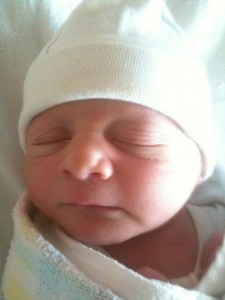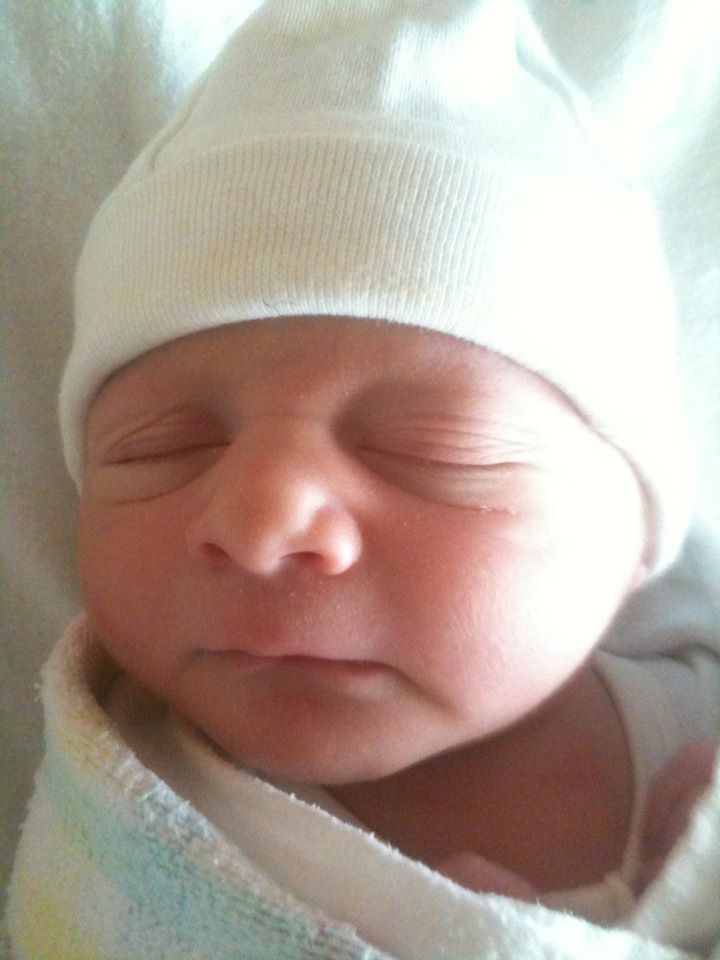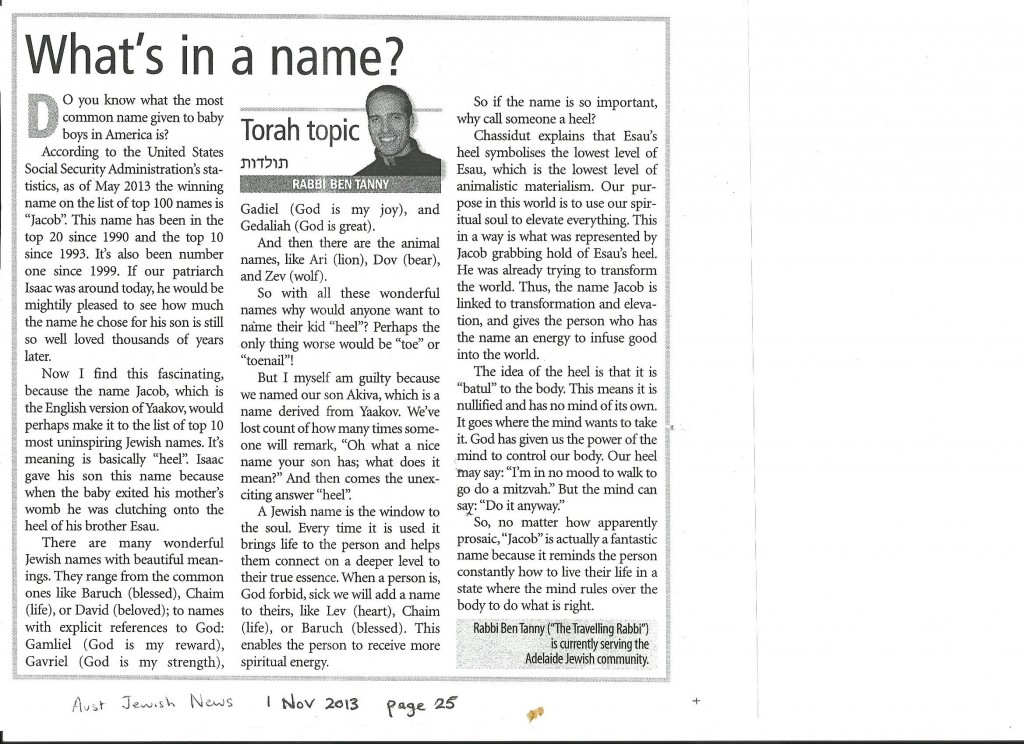Parshas Vayetzei: The Importance of Judging Favorably
In the famous book ‘The Phantom Tollbooth’, the main character Milo and two of his friends jump to conclusions about how easy their journey is. Unfortunately for them, Conclusions turns out to be a barren island crowded with people, to which they have literally jumped. They discover that although it is very easy to jump to Conclusions, it is not so easy to get back again.
Unfortunately, most of us jump to conclusions quite regularly. However, unlike in ‘The Phantom Tollbooth’, we don’t always notice the unpleasantness of the place where we’ve ended up, although it does take us a good long swim in the Sea of Knowledge to get back again. In our ordinary lives, many conclusions we jump to are harmless, but when we jump to conclusions that concern our fellow man, it can be very dangerous indeed.
Judaism teaches that we must always judge others favorably. Pirkei Avos (Ethics of Our Fathers) tells us that we cannot judge another man until we have stood in his shoes – which is, of course, impossible to do. We can never fully understand another person or his/her reasons and motives for doing something. It is up to us to construe the best possible motive we can.
Rabbi Levi Yitzchak of Berditchev spotted a man greasing the wheels of his wagon while he was wearing his tallit and tefillin. Instead of being furious at this sacrilege, the rabbi turned his eyes toward heaven and proclaimed, “See, Master of the World, how holy Your children are! Even when he is engaged in greasing his wheels, he nevertheless remembers to pray to You.”
We never know how powerful our words and our interpretations can be. Perhaps our good interpretations are as angels to help defend that person in the Heavenly Court. Perhaps the negative conclusions we jump to help the Yetzer Hara (evil inclination/Satan) to prosecute our fellow man in the Heavenly Court. Surely when it comes to something so serious, we want to be as good to others as possible! And of course, we definitely want others to judge well of us in turn.
The seriousness of this kind of judgment and jumping to conclusions comes to the forefront at the end of this week’s parsha. Rachel steals one of her father’s idols and when he comes chasing after Jacob demanding the return of the stolen object, Jacob curses with death whomever would have stolen such a thing. He simply cannot fathom that anyone in his family entourage would possibly want an idol. Yet, Rachel only took the idol as an attempt to force her father away from idol worship. She had the best of intentions. And as we see in next week’s parsha, Jacob’s curse comes true and Rachel dies.
Of course most of us are not on such a high spiritual level that simply jumping to conclusions and making the wrong judgment of someone will cause their death. But this does not mean we can underestimate the harm done when we judge another person poorly. Whether the harm is spiritual, emotional, or physical matters not. We have the power to choose instead to do the right thing and judge others well. By doing so, we have untold powers to improve the lives of those around us. This week, let us all focus on judging positively!
Shabbat shalom!
Read more on Parshas Vayetzei: Praying for and in Yerushalayim (Jerusalem)
Read more on Parshas Vayetzei: Jacob’s Ladder Teaches us to Strive for Perfection
Read More

 How to Keep Kosher While Traveling
Finding Food: There are three types of places you may find yourself:
Developed countries like: Canada, United States, and Australia. In most developed Western countries you can buy almost anything in a supermarket aside from meat and dairy products. A vegetarian and vegan self-caterer would have no...
How to Keep Kosher While Traveling
Finding Food: There are three types of places you may find yourself:
Developed countries like: Canada, United States, and Australia. In most developed Western countries you can buy almost anything in a supermarket aside from meat and dairy products. A vegetarian and vegan self-caterer would have no...
 How to Keep Shabbat Anywhere
Toilet Paper: Remember to tear toilet paper. (Especially in India!!!)
Lights: Leave the bathroom light on. For high-tech places where you use your entry card to keep the lights on, I just leave the room before Shabbat and forget my key and leave the lights and air-conditioning on. I tell them at the front desk...
How to Keep Shabbat Anywhere
Toilet Paper: Remember to tear toilet paper. (Especially in India!!!)
Lights: Leave the bathroom light on. For high-tech places where you use your entry card to keep the lights on, I just leave the room before Shabbat and forget my key and leave the lights and air-conditioning on. I tell them at the front desk...
 Camping on Shabbat
How to: Build an Eruv, Bake Bread, go to the Toilet, and More
A Practical Guide to Camping Over Shabbat.
Camping on Shabbat requires extra preparation and effort, but is not that difficult once you get the hang of it – and Shabbat can be a highly rewarding experience when spent in nature. This book will show you how...
Camping on Shabbat
How to: Build an Eruv, Bake Bread, go to the Toilet, and More
A Practical Guide to Camping Over Shabbat.
Camping on Shabbat requires extra preparation and effort, but is not that difficult once you get the hang of it – and Shabbat can be a highly rewarding experience when spent in nature. This book will show you how...
 “The jungles of Borneo, Mt Kilimanjaro in Africa, a Thai boxing camp in Thailand… this guy manages to keep kosher and observe Shabbat.”
I have been traveling since 1997 and never really stopped. My house is my backpack where I have everything I need; clothing, a tooth brush, juggling balls, and a pair of small Tefillin.
People...
“The jungles of Borneo, Mt Kilimanjaro in Africa, a Thai boxing camp in Thailand… this guy manages to keep kosher and observe Shabbat.”
I have been traveling since 1997 and never really stopped. My house is my backpack where I have everything I need; clothing, a tooth brush, juggling balls, and a pair of small Tefillin.
People...







